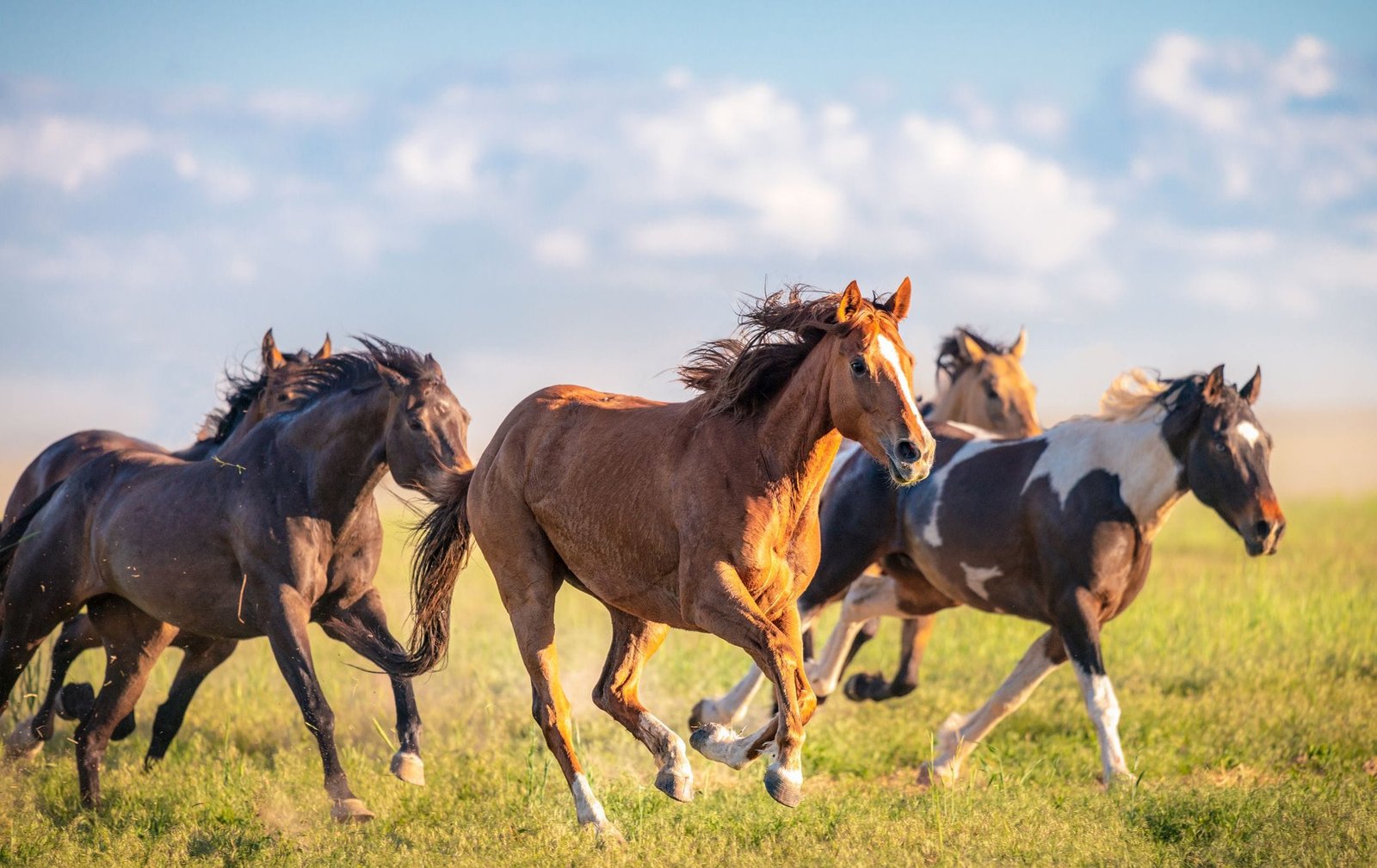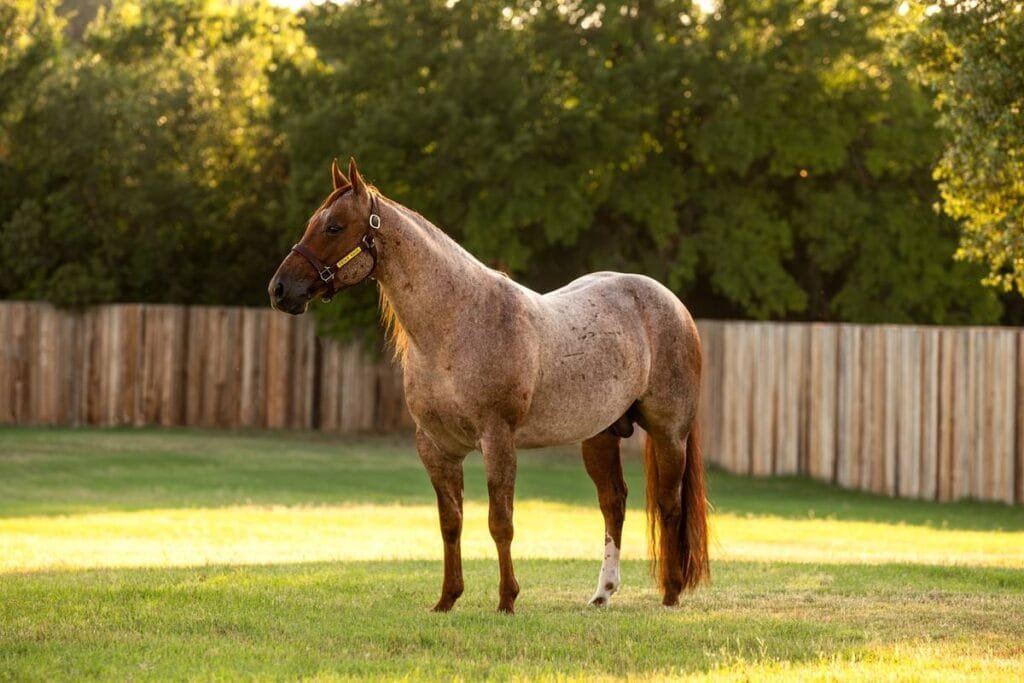In the vast landscapes of North America, the Mustang horse roams as a symbol of freedom and resilience.
Versatile, hardy, and intelligent, there’s a lot to love about the mustang horse. A true American breed, mustangs are actually feral (free-roaming) horses that are found in the western United States. The mustang has a rich history, and can make a phenomenal riding partner with proper training. These are small horses that can be great companions for ranch work and trail riding.
History
The story of the Mustang begins centuries ago when Spanish explorers brought horses to the Americas in the 1500s. Some of these horses escaped or were released, adapting to the wild and thriving in the rugged terrain of places like the Great Plains and the deserts of the Southwest. Over time, these free-roaming horses became known as Mustangs, a term derived from the Spanish word “mustengo,” meaning wild or stray.
Unique Characteristics
The mustang is known for being very hardy and surefooted, thanks to their wild heritage. These qualities make mustangs ideal as working horses and trail horses, since they can navigate terrain that other breeds might struggle with.
Common Health and Behavior Problems
Mustangs are hardy and are known for having strong, healthy hooves. They tend to be quite healthy.Behavior in mustangs can vary depending on the horse’s background and level of training. A mustang that has been rounded up and adopted out with little handling will probably be reactive and spooky. Given time to gain trust in humans, mustangs can be calm and well-mannered with proper training.
Cultural Significance
The Mustang holds a special place in American culture, often seen as a symbol of freedom and the pioneer spirit of the West. Artists and writers have been inspired by their beauty and resilience, depicting them in countless paintings, sculptures, and stories. Native American tribes revered Mustangs as sacred animals, embodying strength, spirit, and a deep connection to the land.

Breed Overview
WEIGHT: 800 pounds
HEIGHT: 14 to 15 hands
BODY TYPE: Stocky and hardy
BEST FOR: Trail riding and ranch work
LIFE EXPECTANCY: Usually about 25 to 30 years, up to 40 years
Mustang Horse Size
Mustangs are smaller horses, typically standing between 14 and 15 hands high and weighing about 800 pounds.
Pros and Cons of Mustang Horses
Pros:
- Symbol of Freedom: Mustang horses embody the spirit of freedom and resilience, symbolizing the untamed wilderness of the American West.
- Adaptability: They thrive in diverse landscapes, including deserts, grasslands, and mountains, showcasing their ability to survive in harsh environments.
- Cultural Significance: Mustangs hold a special place in American culture and history, revered by Native American tribes and celebrated in art, literature, and film.
- Natural Beauty: Known for their sturdy builds and varied coat colors, Mustangs are visually striking and admired for their aesthetic appeal.
- Ecological Role: They play a vital role in ecosystems as grazers, helping maintain plant diversity and contributing to the balance of natural habitats.
Cons:
- Habitat Loss: Mustangs face threats from human encroachment, leading to habitat loss and fragmentation, which reduces their available range.
- Resource Competition: They compete with livestock for resources such as food and water, which can impact both wild horse populations and native wildlife.
- Population Management: Controversies surround the management of Mustang populations, including debates over herd sizes, round-ups, and removals from public lands.
- Genetic Diversity: Some Mustang populations face challenges related to genetic diversity due to historical bottlenecks and isolation, potentially affecting their long-term viability.
- Legal and Policy Issues: There are ongoing legal and policy debates regarding the protection, management, and conservation of Mustang horses, often involving conflicting interests and stakeholders.




